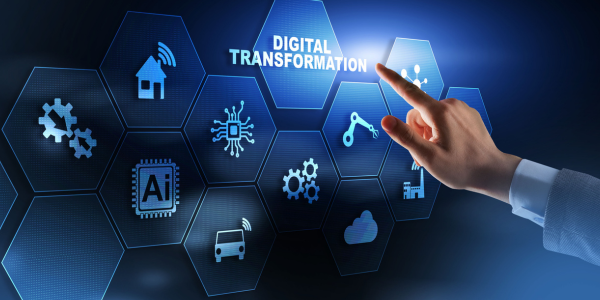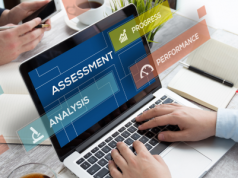What Is Digital Literacy and Why Does It Matter?
Digital literacy refers to the ability to use information and communication technologies to find, evaluate, create, and communicate information, requiring cognitive and technical skills. It involves the ability to find, evaluate, and communicate information using digital technologies, including typing or digital media platforms. Digital literacy has three buckets: finding and consuming digital content, creating digital content, and communicating and sharing it. It requires certain skill sets, including information, media, and technology; learning and innovation skills; and life and career skills.
In today’s digital age, digital literacy has become an increasingly important skill for individuals in almost every industry and profession. From basic computer skills to advanced coding and data analysis, digital literacy is essential for success in the modern workplace. This is because digital technologies are used extensively across industries and sectors, from healthcare and finance to education and entertainment.
Digital literacy also matters because it is essential for individuals to be informed and engaged citizens in a rapidly changing world. The internet and social media have transformed the way we access and share information, and being able to evaluate and use this information effectively is crucial for making informed decisions and participating fully in society.
Moreover, digital literacy can help individuals to improve their communication and collaboration skills, as well as their ability to adapt to new technologies and job roles. This can be particularly important for individuals who are looking to advance their careers or transition to new roles.
Digital Literacy in Education
Digital literacy has become an essential skill for students in today’s educational landscape. As technology continues to play an increasingly important role in education, students who are digitally literate are better equipped to succeed academically and professionally.
Here are some ways digital literacy is important in education:
- Access to Information: The internet provides a vast amount of information and knowledge that can be accessed from anywhere in the world. Digital literacy allows students to search for information and resources online, evaluate their credibility, and use them effectively to support their learning.
- Collaboration: Digital literacy also enables students to collaborate with their peers and teachers more effectively. Digital tools such as online discussion forums, wikis, and Google Docs make it easier for students to work together on projects, share ideas, and provide feedback.
- Online Learning: Digital literacy is essential for students who are taking online courses or participating in distance learning programs. Students must be able to navigate online learning platforms, communicate effectively with teachers and classmates, and access and submit assignments digitally.
- Digital Citizenship: Digital literacy also includes knowledge of digital citizenship, which is the responsible and ethical use of technology. This includes understanding online safety and security, cyberbullying, and intellectual property rights.
- Career Readiness: Finally, digital literacy is crucial for students who are preparing for the workforce. Many jobs today require the use of digital tools and technology, and students who are digitally literate are better equipped to adapt to new technologies and job roles.
Overall, digital literacy plays a critical role in education today, and students who possess strong digital literacy skills are better prepared for success in their academic and professional lives.
Also Read: How to use ChatGPT in your Job Hunt
Digital Literacy Skills & Examples
Digital literacy skills are the abilities and knowledge required to effectively navigate and utilize digital technologies. Here are some examples of digital literacy skills:
- Basic Computer Skills: This includes knowledge of computer hardware and software, such as how to operate a computer, use a mouse and keyboard, open and save files, and perform basic troubleshooting.
- Internet Skills: This includes the ability to navigate and search the internet, use web browsers, and search engines, and understand web content and web addresses.
- Social media skills: This includes the ability to use social media platforms such as Facebook, Twitter, and LinkedIn to connect with others, share content, and build a professional online presence.
- Communication Skills: This includes the ability to communicate effectively using digital tools, such as email, instant messaging, and video conferencing.
- Data Analysis Skills: This includes the ability to collect, analyze, and interpret data using digital tools, such as spreadsheets and data visualization software.
- Cybersecurity Skills: This includes knowledge of online security threats and how to protect yourself and your information from cyber-attacks.
- Coding Skills: This includes the ability to write and understand computer code in programming languages such as Java, Python, and HTML.
- Digital Design Skills: This includes the ability to create and manipulate digital images, videos, and graphics using software such as Adobe Photoshop and Illustrator.
- Project Management Skills: This includes the ability to manage and collaborate on digital projects, such as using project management software to track tasks and deadlines.
Also Read: How to Beat the Pre-appraisal Jitters
Training on digital literacy is highly relevant in today’s digital age, where technology is ubiquitous and rapidly evolving. Digital literacy skills are no longer a luxury but have become essential for individuals to participate fully in society, succeed in the workforce, and engage in lifelong learning.
Training on digital literacy can help individuals develop the skills and knowledge required to effectively navigate and utilize digital tools, including computers, software, and the internet. Digital literacy training can also help individuals develop critical thinking and problem-solving skills, enabling them to evaluate information and communicate effectively in a digital environment.
In the workplace, digital literacy training can help employees adapt to new technologies and job roles, improve their productivity and efficiency, and collaborate more effectively with colleagues. It can also help organizations remain competitive by equipping their workforce with the digital skills required to keep pace with technological advancements and meet the demands of the modern workplace.
Also Read: A framework for Remote and Hybrid Learning
What Are the Principles of Digital Literacy?
The principles of digital literacy are a set of guiding concepts and practices that define what it means to be digitally literate. Here are some of the key principles of digital literacy:
- Access: Digital literacy begins with access to technology and the internet. Access to technology must be available to all individuals regardless of their socioeconomic status, location, or background.
- Digital Communication: Digital literacy involves the ability to communicate effectively using digital tools, such as email, instant messaging, and social media. This includes the ability to create and share digital content, and to communicate with others in a respectful and appropriate manner.
- Critical Thinking: Digital literacy also involves the ability to critically evaluate information and sources online. This includes understanding how to identify and evaluate credible sources of information and to recognize bias, misinformation, and propaganda.
- Privacy and Security: Digital literacy requires knowledge of online privacy and security. This includes understanding how to protect personal information online, how to recognize and avoid online scams, and how to use strong passwords and encryption tools.
- Copyright and Intellectual Property: Digital literacy involves an understanding of copyright laws and intellectual property rights. This includes knowing how to use digital content legally and ethically and how to give proper attribution to sources.
In today’s world, digital literacy and digital citizenship are more important than ever. As our lives become increasingly digital, it is essential that individuals develop the skills and knowledge required to navigate and utilize digital tools effectively, while also understanding the responsibilities and ethical considerations that come with being a digital citizen.
By promoting digital literacy and digital citizenship, we can create a more inclusive and equitable digital society where everyone has access to digital tools and the skills required to use them effectively. This, in turn, can lead to greater opportunities for individuals, improved communication and collaboration, and a more informed and engaged citizenry.
In conclusion, digital literacy and digital citizenship are crucial components of modern-day education and should be integrated into all aspects of learning. By emphasizing these skills and values, we can create a more connected and responsible digital world, where everyone has the tools and knowledge they need to succeed.


























